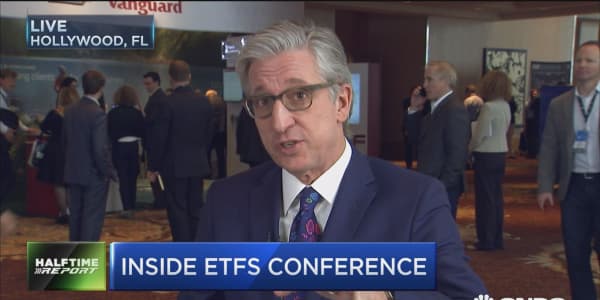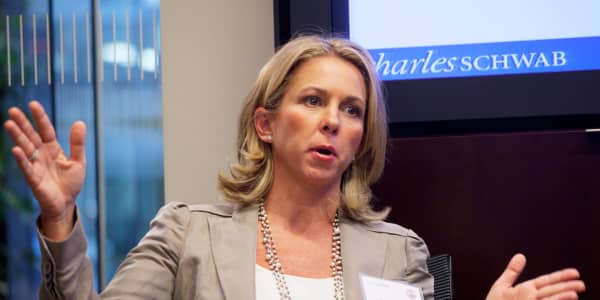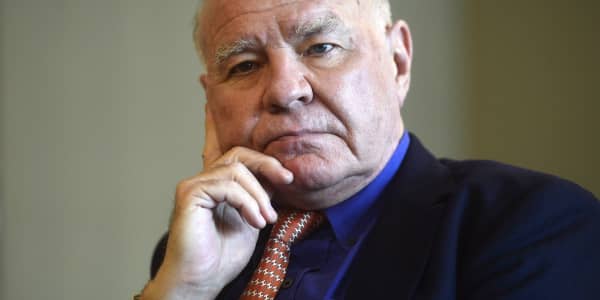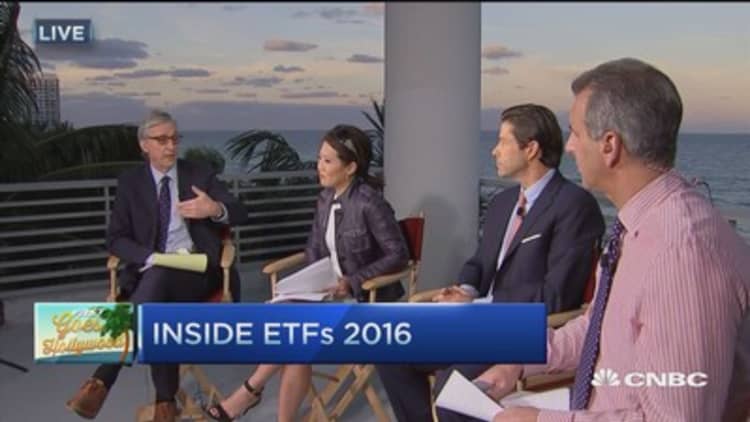
Early last year, Mark Yusko, founder and CEO of Morgan Creek Capital Management, predicted crude oil would approach $30 a barrel and deflation would become the main economic headwind for the developed world, rather than the inflation with which the market had been obsessing.
Yusko, whose dour market views were prescient, doesn't have any brighter view of economic or market conditions now.
The easing of sanctions on Iran and Saudi Arabia's reluctance to cut production are among the factors that will continue to crush energy prices.
"There's no chance we're going to get any spike, upward movement in oil. It's not going to happen," Yusko said during his annual "Bold Predictions" talk on Monday afternoon at the Inside ETFs conference in Hollywood, Florida.
Yusko also projects a "messy bankruptcy" for at least one commodity company. He pointed specifically to mining and commodities trading firm Glencore, which has seen its London-traded shares fall nearly 70 percent in the last year amid sliding commodities prices and debt concerns.
Glencore declined to comment. Earlier this year, CEO Ivan Glasenberg said in a statement, "Glencore is well placed to to continue to be cash generative in the current environment — and at even lower prices. We retain a high degree of flexibility and will continue to review the need to act further as required."
Yusko said a recession is coming "as sure as the sun rises." He just can't decide in which of the world's major economies a recession surprise will first arrive.
Either the United States or Europe may fall into recession in 2016, he said, with his pessimism about the U.S. economic outlook predicated on declining corporate profits and a manufacturing sector contraction, which indicate a wider slowdown.
Yusko also echoed comments made at the Inside ETFs conference by influential bond investor Jeffrey Gundlach of DoubleLine Capital, who criticized the Federal Reserve — not for the first time — for raising interest rates in December.
"Maybe the Fed has actually lost control," Yusko said.
The European Central Bank's negative interest-rate policy elicited this comment from the manager: "I'm not sure what that's a sign of, but it's not good."
Goldman Sachs analysts, though, recently argued that recession fears are overblown.
Of the major, developed economies, Yusko saw some opportunity for investors in the Japanese market. The Bank of Japan could continue to ease policy, pushing the yen "dramatically" lower, he said, and Japanese stocks higher. He argued that the dollar may rise to 135 yen, from 118 on Monday, boosting businesses and sending the Nikkei 225 to 21,000, up from just under 17,000 now.
Such a move would be a huge reversal for an index that has already fallen by a correction-level double-digit percentage this year and was tumbling again Tuesday as part of another Asian equities sell-off.
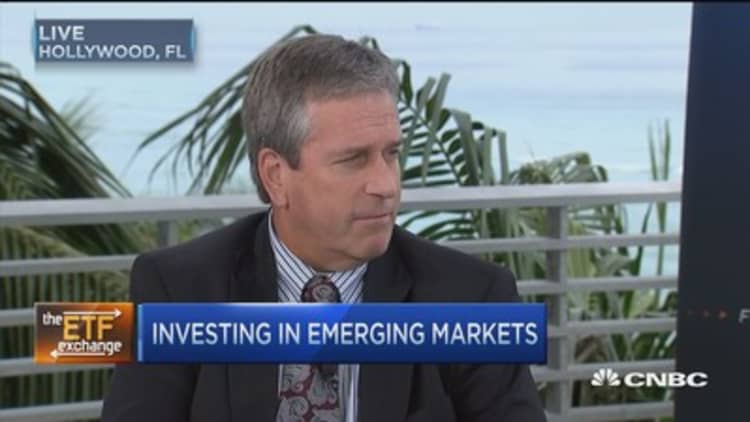
The jewel in the crown
A market that Yusko showed some faith in is India, which he expects to stay ahead of the battered emerging market pack. The World Bank earlier this month projected 7.8 percent gross domestic product growth for India in 2016, ahead of China's 6.7 percent rate.
Yusko contended that Indian stocks will rise in 2016 after being dragged down in 2015 with all the emerging markets.
But the Indian stock market has a long way to go if it's going to break free from the emerging markets contagion: The iShares MSCI India ETF (INDA), which tracks large and mid-sized Indian companies, has plunged 9 percent this year and 24 percent in the past 12 months, through Monday. That performance is slightly better than the broader emerging markets indices, such as iShares MSCI Emerging Markets (EEM).






